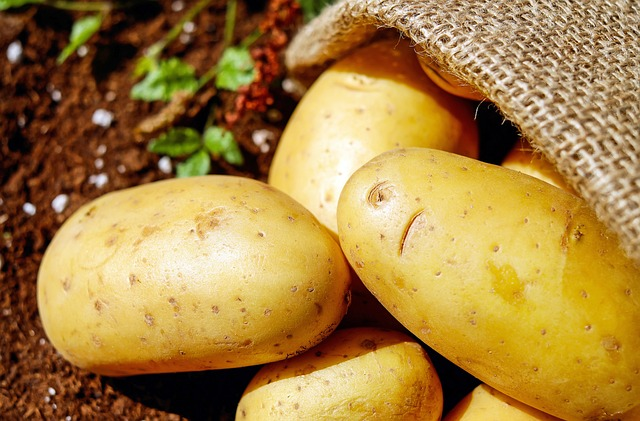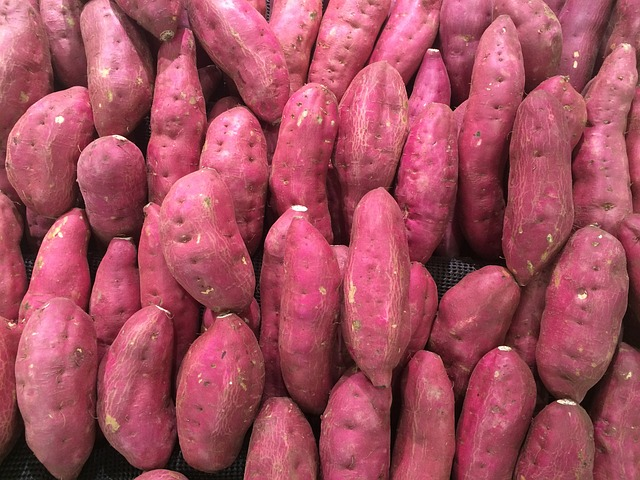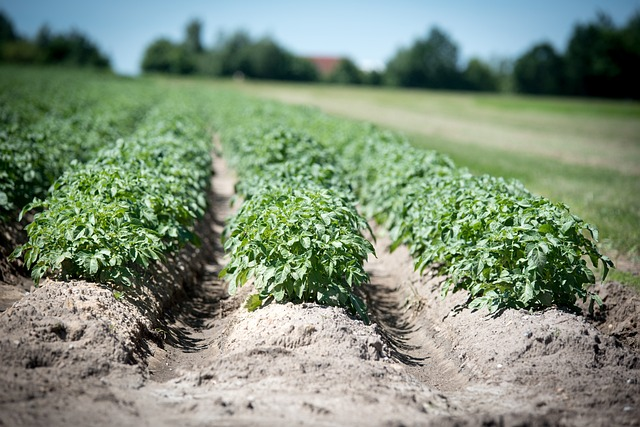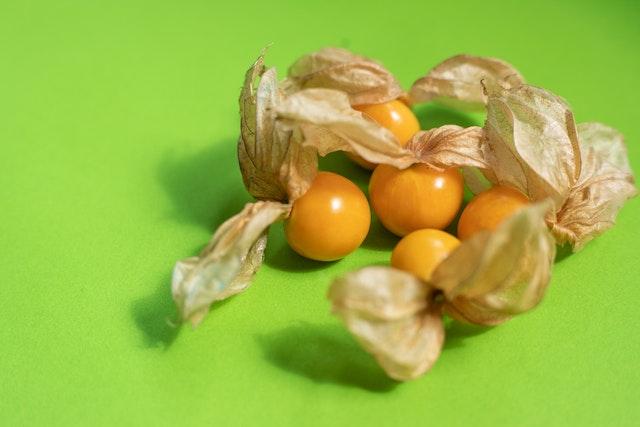No products in the cart.
Are potatoes vegetables
Introduction
Potatoes are a vegetable, right? Well, not necessarily. In fact, potatoes can technically be classified as a fruit. The reason why potatoes can technically be classified as fruit is that they contain the sugar fructose, which is found in the cells of most fruits. However, the majority of people classify potatoes as starchy veggies.
The average American consumes over 140 pounds of potatoes each year. This makes potatoes one of the most consumed vegetables in the United States whether boiled, mashed, or roasted. Baked potatoes are also a hearty delicacy.
Americans consume potatoes in many forms; French fries, tater tots, and hash browns are all popular ways to enjoy potatoes. They are often used to make soups and casseroles. Potato bread, muffins, pancakes, gnocchi and cakes are all delicious ways to enjoy potatoes.

What Is a Potato?
A potato is a starchy, tuberous crop from the perennial nightshade Solanum tuberosum. The word “potato” may refer either to the plant itself or to the edible tuber and it likely comes from Quechua pota, meaning “small watermelon”. Potatoes are the world’s fourth-largest food crop, following maize, wheat, and rice. The potato plant was first domesticated in the Andes region of South America.
Potatoes are a versatile and nutritious vegetable, and there are many potato varieties and subgroups to choose from each with its own unique flavor and texture. Here are five subgroups:
1. Russet Potatoes: These potatoes have an oval shape with rough, brown skin. They are a starchy type of potato and are best used for baking, roasting, and mashing.
2. Red Potatoes: These potatoes are round and have thin, red skin. They have a slightly sweet flavor and creamy texture that makes them perfect for roasting, boiling, or mashing potatoes.
3. Yukon Gold Potatoes: These potatoes are oblong in shape and have yellow-gold skin. They are waxy potato that has a creamy texture and a slightly sweet flavor. They are great for roasting, boiling, or mashing potatoes.
4. Fingerling Potatoes: These potatoes are small and finger-shaped. They have a waxy texture and a buttery flavor, making them perfect for roasting or boiling.
5. Sweet Potatoes: Sweet potatoes are oblong in shape and have light orange-brown skin. They have a sweet and creamy texture and are great for roasting, baking, and are sometimes eaten raw in salads.

Botanical classification
Potatoes (Solanum tuberosum) are root vegetables and are a widely cultivated tuber of the nightshade family. Botanically speaking, potatoes are classified as an herbaceous perennial and are among the most important and widely cultivated food crops in the world. The potato belongs to the Solanaceae family, which includes many other nightshade plants such as tomatoes, peppers, and eggplants. It is a member of the genus Solanum, which includes more than 2,500 species of flowering plants. Within this genus, the potato is classified as Solanum tuberosum, a species that is characterized by its edible tubers. The potato is a highly adaptable and versatile crop that can be grown in a wide variety of climates and soil types. It is an important food crop, providing an abundant source of carbohydrates, proteins, vitamins and minerals. The potato is a relatively low-maintenance crop, requiring minimal amounts of water and fertilizer to produce a good harvest. When grown in optimal conditions, potatoes can be harvested several times a year. The tubers can be stored for several months, allowing them to be consumed year-round.
Nutritional benefits
Potatoes are a staple food in many diets around the world and have many health benefits. They are packed with key nutrients, and their versatility makes them a great addition to any meal. Here are some of the nutritional benefits of potatoes.
Potatoes are a good source of complex carbohydrates, and they are a great source of energy. They also contain fiber, which can help to regulate blood sugar levels. Potatoes are also packed with vitamins and minerals, including Vitamin C, Vitamin B6, potassium, manganese, and magnesium all of which add up to a healthy diet.
Potatoes are also a good source of plant-based protein, which helps to fuel the body and support muscle growth. They are also low in fat and calories, making them a great choice for people who are trying to lose weight. The skin of potatoes is a great source of antioxidants, which can help protect against free radical damage and reduce inflammation. The antioxidants can also help to reduce the risk of certain diseases, such as cancer and cardiovascular disease. Potatoes are also a great source of potassium, which is essential for maintaining healthy blood pressure levels. Potassium can also help to reduce the risk of stroke and other heart-related conditions.
The relationship between the potato plant, red and orange vegetables such as carrots, sweet potatoes, bell peppers, non-starchy vegetables, and starchy vegetables is a strong one. They are all important sources of carbohydrates that are necessary for a healthy diet. All are high in complex carbohydrates, which are good sources of energy and provide essential nutrients.
Starchy vegetables, such as corn, peas, beans, and squash, are also a great source of dietary fiber, which helps to regulate digestion and reduce cholesterol levels hence promoting a healthy heart. Additionally, they are high in antioxidants, which help to protect cells from damage caused by free radicals.
The tomato plant is similar to the potato plant in appearance since they belong to the Nightshade family. Flowers from both plants are also similar.
Overall, potatoes are a nutritious and versatile food that stores nutrients hence providing much-needed energy. Like other vegetables, potatoes are a great way to get your daily dose of essential vitamins and minerals. They are low in fat and calories and can be easily prepared in a variety of ways. They are also budget-friendly and can be added to many dishes to provide extra nutrition.
Is a Potato a Vegetable or Not?
The debate over whether a potato is a vegetable or not may seem trivial, but there are strong arguments to be made for both sides. A potato is commonly thought of as a starchy vegetable, but it is technically a starchy tuber, which is a type of root vegetable. Potatoes grow underground. The debate over whether a potato is a starchy vegetable or not has been around for centuries, and while there is no definitive answer, there are some compelling arguments to be made for classifying a potato as a vegetable.
Arguments for classifying potatoes as vegetables
Nutritional Value
This is one of the primary arguments for classifying a potato as a vegetable. Potatoes are an excellent source of nutrition, providing essential vitamins, minerals, and fiber. In addition, potatoes are a good source of complex carbohydrates, which are essential for providing energy for the body. Potatoes are also low in fat and contain no cholesterol, making them a healthy food choice.
Preparation Methods
Another argument for classifying a potato as a vegetable is its preparation methods. Potatoes can be prepared in a variety of ways, including boiled, baked, mashed, or fried. This versatility makes potatoes a popular choice when it comes to meal planning.
Arguments against classifying potatoes as vegetables
Botanical classification
Botanically, potatoes are considered tubers, not vegetables. Tubers are modified stems that grow underground and store nutrients, while vegetables are typically defined as the edible parts of plants that are consumed as part of a meal. Potatoes are a type of tuber that grows on the roots of the potato plant, which is a type of nightshade.
Nutritional Benefits
Nutritionally, potatoes are not considered a vegetable either. Potatoes are rich in carbohydrates and contain a relatively small amount of vitamins and minerals. Potatoes are also high in calories and contain a high glycemic index, which means that they have a large effect on blood sugar levels. This makes them a poor choice for those trying to lose weight or manage their blood sugar levels.

Conclusion
The scientific definition of a vegetable is a plant or part of a plant that is eaten, usually as part of a main meal. Potatoes certainly meet this criteria, as they are a plant and are eaten as part of a main meal. Therefore, potatoes can be classified as a vegetable based on this definition. However, this is still an open debate as indicated by the arguments above.


